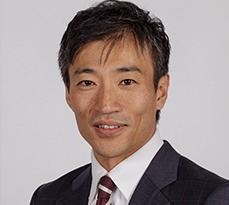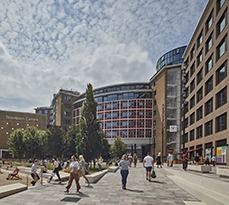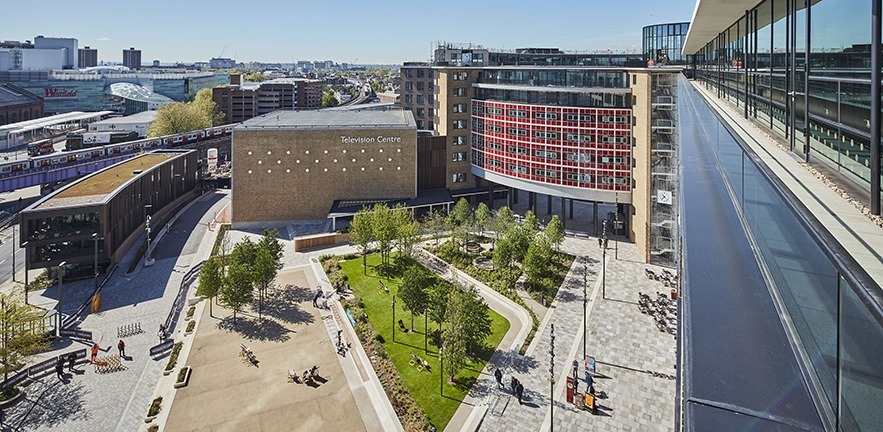In 1960, the BBC opened Television Centre in London, the first purpose-built television studio of its kind in the world. Over the next 5 decades, it was home to some of the most iconic programmes on British television, from Blue Peter to Strictly Come Dancing.
Television Centre was sold to developers in 2012 when the BBC decided to move its operations to Broadcasting House in central London. Plans for the former site included up to 950 new homes and about 400,000 square feet of office space, with the hope of attracting c. 6,000 workers and residents.
From TV studio to regeneration hotspot

The challenge of redeveloping this cultural institution is in part down to Hiroshi Hisada (EMBA 2017), Executive Manager for Japan’s largest property company, Mitsui Fudosan. Part of the global Mitsui Fudosan Group, the company partnered with another developer called Stanhope to develop the site as part of a wider regeneration initiative for the capital’s White City area.
“In real estate, we usually need to create value from scratch,” explains Hiroshi, “but we understand that BBC Television Centre still has a very important place in the British soul. We intend to retain the site’s heritage and give it another life as a place where people will enjoy living, working and visiting.”
“Three TV studios still exist on-site, where programmes like The Graham Norton Show are filmed every week. The original BBC lobby where many TV stars were seen walking through still exists as a residential lobby, which we understand the residents are happy with.”
Leadership and communication skills
Hiroshi is responsible for the London branch of Mitsui Fudosan, working on the Television Centre project in addition to his HR and Investment responsibilities. “As the second-in-command in the UK, I have to lead many teams, both internal and external. These teams cover functions as wide as design, sales and everything in between.”
Hiroshi believed that a programme like the Cambridge Executive MBA would help him develop his leadership and communication skills, given the number of staffers that he works with.

“‘Placemaking’ an entire neighbourhood can be a difficult concept to get right, especially when you are retaining the old and creating the new. For our teams to be efficient, I need to make sure I properly communicate with and convince staff of our vision for the project. I’ve joined this programme at Cambridge to improve my leadership and communication skills.”
The industry and cultural diversity of the programme – with over 30 nationalities represented – has enabled Hiroshi to question and improve upon his communication methods.
“There are many kinds of people on this programme that I would never have met, had I not joined. It’s made me more self-aware about how I communicate. I’m better at listening to other people’s opinions now, instead of just saying whatever I believed to be right. This is because, back in Japan, there is a kind of mono-culture approach when it comes to conducting business. I’ve noticed that here in the UK there might be not one, but many correct answers to a question.”
“I’ve also learned about a lot of different leadership styles, and work to find out which style is appropriate in each situation I might be in.”
Looking ahead
As Hiroshi continues his studies at Cambridge, he is now reflecting on how the programme might prepare him for future career possibilities.
“Whilst I’m not sure how the programme will affect my immediate future, I am sure that the flexible approach to decision-making and the value of our class network will broaden my future possibilities. I look forward to seeing what will happen.”


